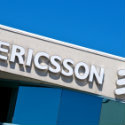
Also in today's EMEA regional roundup: masts still under attack, says Three CEO; Orange connects West Africa; Telefónica virtualizes the factory with 5G.
Telia says it has become the first operator to launch a commercial 5G network in Estonia, initially in the cities of Tallinn, Tartu and Pärnu. Working with Ericsson, Telia is using dynamic spectrum sharing (DSS) technology, which allows it to use frequency bands already in play, rather than having to wait for outcome of the 3.5MHz spectrum auction in early 2021. The operator plans to expand the network to 20 locations by the end of 2020 and take it nationwide in 2021.
A coronavirus update from the CEO of UK mobile operator Three reveals that 5G-related attacks on masts are continuing to plague the industry. "Unfortunately, there have still been a number of attacks on our mast sites over the past few months seemingly motivated by baseless theories around 5G and Coronavirus," says Robert Finnegan in his blog post. "Hundreds of thousands of our customers have suffered either a loss or a degradation to their service because of them, thankfully only in the short term. The attacks need to stop and I am grateful for the ongoing support from government in this area." (See The only 5G health risk is the mast-burning vandal and Brits lead the world on 5G mast burning.)
Orange has announced the commercial launch of Djoliba, which it describes as "the first pan-African backbone." The infrastructure, which is based on a terrestrial fiber-optic network coupled with undersea cables, covers eight countries: Burkina Faso, Côte d'Ivoire, Ghana, Guinea, Liberia, Mali, Nigeria and Senegal. Orange says the Djoliba network will bring "superfast" (up to 100Gbit/s) broadband to companies looking to meet the connectivity needs of West Africa's 330 million inhabitants. For more details, see this story on our sister site, Connecting Africa.
Telefónica has teamed up with automotive components maker Gestamp to implement a 5G-connected factory "use case" at one of its plants in Barcelona. The project sees the virtualization of factory, using data generated over its 5G network to perform massive simulations that allow for better decision making. Specifically, Telefónica has connected the physical elements of the factory, such as the robotic welding cells, via 5G to capture and process in real time the data produced by the equipment during its operation through the nearby computing capabilities that multi access edge computing (MEC) makes possible.
And in related territory, Telefónica has expanded its collaboration with ASTI Mobile Robotics through a new global agreement that will see them working together to persuade more of their industrial customers of the benefits of digitization.
Huawei may have been frozen out of the UK's 5G network rollout, for the time being at least, but that has not stopped it from partnering up with Cambridge Wireless to deploy and build Cambridge's first 5G mobile private network within the city's Science Park. The plan is that the network, which is due to go live in January 2021, will allow Cambridge's technology community to carry out advanced digital research in areas such as autonomous vehicles and remote surgery.
Research into the mobile market in Italy by Opensignal has found that while the main brands of TIM, Vodafone and WindTre are losing smartphone users, their respective lower-cost brands — Kena Mobile, ho. and Very Mobile — are gaining them. Customer churn is a significant concern for Italy's mobile operators because the market is no longer growing and so to acquire new customers, they must persuade users to leave their existing operator.
Openreach, the semi-autonomous network access arm of UK incumbent operator BT, has flicked the FTTP switch in Geordieland, enabling 35,000 homes and businesses in Northumberland, Newcastle and North Tyneside to access full-fiber broadband.
Spotify, the Sweden-based music and podcast streaming service, has agreed to buy Megaphone, a podcast advertising and publishing platform for $235 million. As Reuters reports, Spotify will use Megaphone's technology to create better targeted ads on its service for non-paying users. It will also make Megaphone's ad monitoring tools available to third-party podcast publishers.
— Paul Rainford, Assistant Editor, Europe, Light Reading
Read more about:
EuropeAbout the Author(s)
You May Also Like











